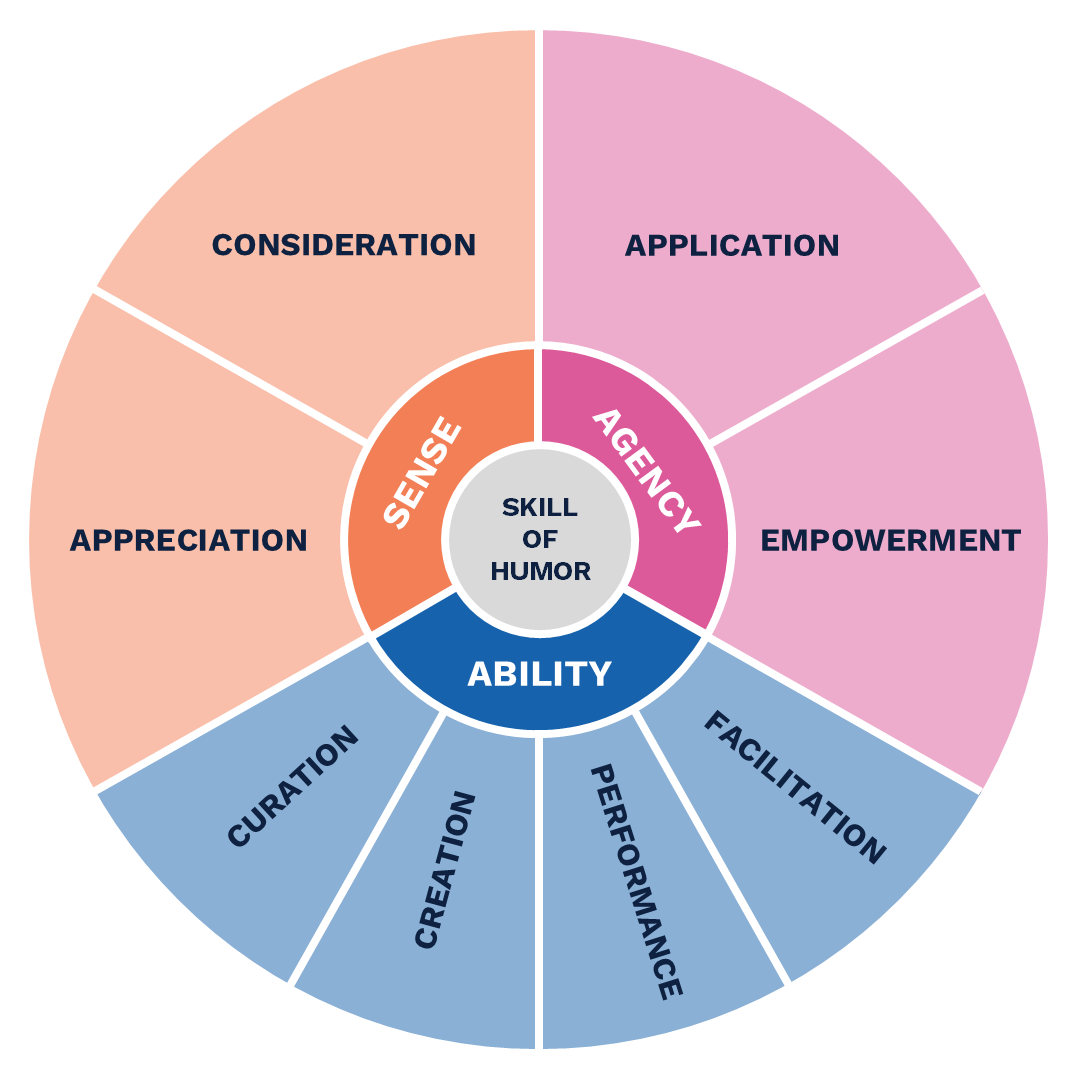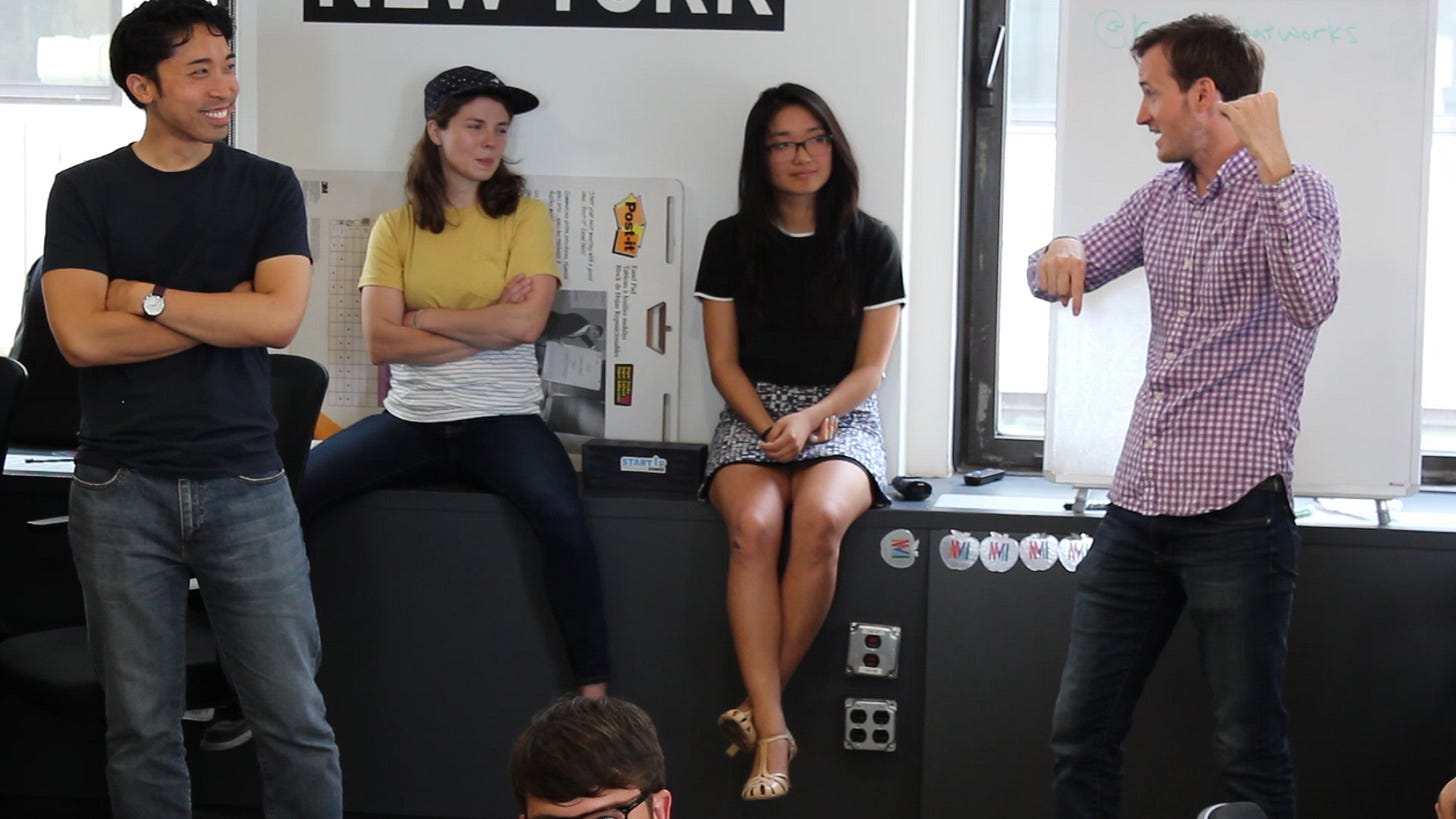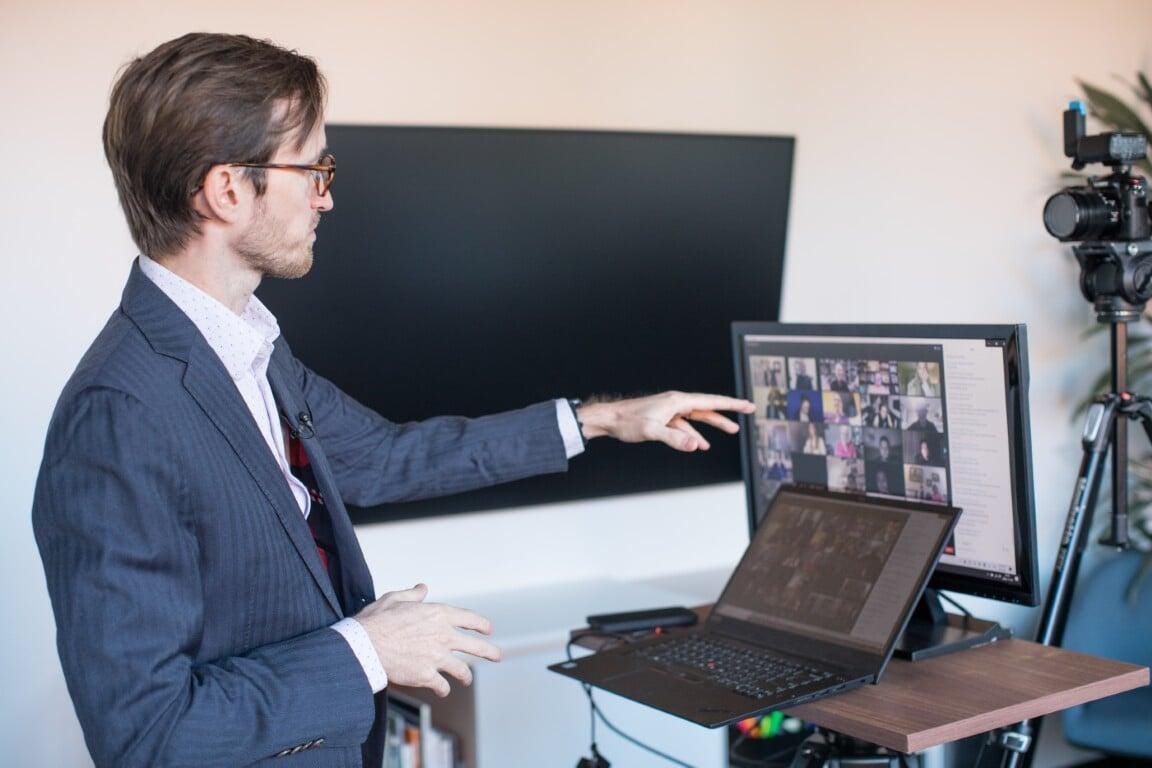No One is Born Funny
4 Simple Steps to Be Funny on Purpose
When I tell people I teach humor, I often get the same response:
“Sure, that’s easy for you to do. You’re just naturally funny.”
Hahahahahaha… I wish.
The truth is, I am not “naturally” funny. At all.
I hesitate to show you this, but this is truly how bad I was. Here’s what my first time doing stand-up looked like (compared to my Dry Bar special):
Is that as painful for you to watch as it is for me?
The difference between then and now isn’t luck, talent, or lighting (although all three of those things improved dramatically).
It’s repetition. It’s feedback. It’s learning how humor actually works and doing it over and over (and over and over) again until you discover your unique mix of levity.
After more than 15 years of stand-up, improv, and even a little spoken word, I’ve learned that the Skill of Humor is about turning something that feels unpredictable into something you can do on purpose.
The Four Competencies of Creating Humor
Once you’ve developed your sense of humor (Appreciation and Consideration), the next part of the journey is your ability to humor.
These are the four practical ways anyone can learn to use humor more effectively.
1. Curation: Sharing the humor you find in the world around you
This is your ability to notice and collect things that make you laugh and then sharing them with other people. It could be a meme, line from a show, or a hyper-specific Instagram reel that exactly one person in your network will truly appreciate.
Pretzel (my wife) and I share a lot of videos about the nuances of the German language.
Try this: screenshot something that made you laugh today and send it to someone else who would appreciate it.
That’s curation in action. You’re training your brain to understand what other people find funny, and building stronger connections in the process.
2. Creation: Crafting humor in your own voice
Creation is taking what you notice and turning it into a joke, cartoon, story, or entire 5-part trilogy (I’m looking at you, Hitchhiker’s Guide to the Galaxy).
For some people, it can feel unnatural to sit down to “write” funny, but after you learn some basic structures and rules, it becomes much easier to create.
Try this: rewrite one work email to sound more like you, the way you actually talk. Add a line that makes someone smile.
That’s creation.
3. Performance: Delivering humor with confidence
Performance doesn’t just mean standing on a stage in a dimly lit room delivering jokes to a semi-drunk audience. It’s how you say what you say, whenever you say anything.
Tone, timing, and body language all matter, and building this ability is one of the quickest ways to be seen as “naturally” funny (and not painfully awkward like me in my first stand-up set).
Try this: before your next meeting, practice your story or update out loud at least once, and do it pretending that you have the same confidence level as your favorite comedian.
Notice how it feels and sounds. That’s performance.
4. Facilitation: Inviting others into the fun
The best humor doesn’t just entertain people, it engages them. Facilitation is the ability to create moments for others to play, laugh, and contribute.
That means leading simple exercises or activities that everyone can be involved in and succeed at.
Try this: at your next team meeting, suggest a super quick icebreaker for everyone to do. As I’ve shared in the past, one of my favorites is people answering the question, “What’s the story of your name?”
That’s facilitation. Humor becomes a shared experience, not a solo act.
From Funny Accidents to Funny on Purpose
You don’t have to master all four of these competencies overnight (I would be thoroughly impressed if you did). Even focusing on one can change how you show up and connect.
But the reward for improving them over time is massive. Imagine leading meetings people actually look forward to. Or easing tension with a well-timed smile. Or being the person who brings a positive vibe to the room, not awkward energy that makes people want to leave.
That’s what happens when you learn to be funny on purpose.
Join the Skill of Humor: Live Lab
If improving your ability to humor sounds like fun, that’s exactly what we’ll be doing in the upcoming Skill of Humor: Live Lab on Saturday, November 8.
It’s a 4-hour, hands-on session where we’ll cover all eight humor competencies and practice them in real time.
As of today, there are only 4 spots remaining. We’re keeping this Founding Cohort intentionally small so everyone gets feedback, practice, and laughter in equal measure.
→ Join the Founding Cohort here
Humor is a skill.
And like any skill, the more you practice it, the more powerful it becomes.
Wit regards,
— Andrew
PS. In the section on Creation, we’ll be covering 12 Comedy Techniques, 5 of which I used in this email. Claim a spot to learn all 12.






